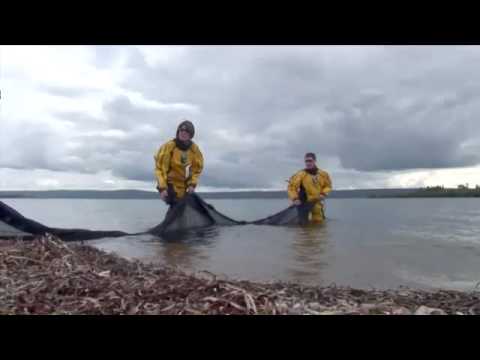Exploring Life: Biologist Job & Salary

Biologist Job Description Template
Biologist Job Description A biologist is a professional who studies living organisms and their relationship with the environment. They conduct research, perform experiments, and analyze data to gain a better understanding of various biological processes. Biologists can specialize in different areas such as zoology, botany, ecology, genetics, microbiology, or physiology. One important aspect of a biologist’s job is conducting fieldwork. This involves collecting samples, observing and documenting organisms in their natural habitats, and analyzing ecological patterns. Fieldwork provides crucial data for research and helps biologists understand the interactions between organisms and their environment. Another significant responsibility of biologists is conducting laboratory experiments. They use advanced equipment and techniques to study different aspects of living organisms, such as their genetics, cellular structures, or physiological functions. These experiments often require meticulous attention to detail and adherence to strict scientific protocols. Moreover, biologists play a vital role in conservation efforts. They study and monitor endangered species, assess the impact of human activities on ecosystems, and develop strategies to protect biodiversity. Through their research and advocacy, biologists contribute to the preservation of natural habitats and the sustainable management of resources. In addition to research and fieldwork, biologists often collaborate with other scientists and professionals from various disciplines. They may work in academic institutions, government agencies, pharmaceutical companies, or environmental organizations. Effective communication and teamwork skills are crucial for biologists to collaborate and share their findings with others. Overall, the role of a biologist is essential in advancing our understanding of living organisms, their interactions, and their impact on the environment. Their work contributes to scientific knowledge, conservation efforts, and the development of solutions for various biological challenges.Biologist Responsibilities
Biologist Requirements
How Much Does A Biologist Make?
Biologist Salary
| Position | Salary |
|---|---|
| Research Assistant | $35,000 – $50,000 |
| Lab Technician | $40,000 – $60,000 |
| Field Biologist | $50,000 – $70,000 |
| Wildlife Biologist | $60,000 – $80,000 |
| Research Scientist | $70,000 – $100,000 |
A biologist’s salary greatly depends on their position and level of experience. As seen in the table above, the salary range varies from $35,000 to $100,000 per year. Research assistants and lab technicians typically earn lower salaries, while field and wildlife biologists tend to earn higher salaries due to the nature of their work. Research scientists, with advanced degrees and extensive experience, have the potential to earn the highest salaries in the field. It is important to note that these figures are approximate and may vary based on factors such as location, organization, and sector of employment.
Biologist Salaries by Country
Top Paying Countries for Biologist
| Country | Average Salary (USD) |
|---|---|
| Switzerland | 100,000 |
| United States | 85,000 |
| Australia | 75,000 |
| Germany | 70,000 |
| Canada | 65,000 |
Biologists are in high demand worldwide, and their salaries vary significantly across different countries. According to recent data, Switzerland is the top paying country for biologists, with an average salary of $100,000 per year. The United States follows closely behind with an average salary of $85,000. Australia, Germany, and Canada also offer competitive salaries for biologists, ranging from $65,000 to $75,000 per year.
A video on the topic Biologist
Video Source : TechsplorationInterview Questions for Biologist
1. What is the role of a biologist?
A biologist studies living organisms and their relationships with the environment. They conduct research, collect and analyze data, and use their findings to better understand and solve biological problems.
2. What are the different branches of biology?
There are several branches of biology, including molecular biology, cell biology, genetics, ecology, evolutionary biology, microbiology, and physiology.
3. What is the importance of biodiversity?
Biodiversity is important because it ensures the stability and resilience of ecosystems. It provides us with resources such as food, medicine, and clean air and water. Biodiversity also contributes to the overall health and well-being of the planet and its inhabitants.
4. How do biologists define life?
Biologists define life as a characteristic that distinguishes organisms from non-living things. It involves processes such as growth, reproduction, response to stimuli, and the ability to adapt to the environment.
5. What is the process of natural selection?
Natural selection is the process by which organisms that are better adapted to their environment have a higher chance of surviving and reproducing. Over time, this leads to the accumulation of traits that are beneficial for survival and reproduction.
6. Can you explain the concept of genetic variation?
Genetic variation refers to the differences in the DNA sequences between individuals of the same species. It is the raw material for evolutionary change and allows populations to adapt to changing environments.
7. How do biologists study the impact of human activities on the environment?
Biologists study the impact of human activities on the environment through various methods such as field observations, laboratory experiments, and mathematical modeling. They assess factors such as pollution, habitat destruction, and climate change to understand their effects on ecosystems and species.
8. What is the role of biotechnology in biology?
Biotechnology involves the use of living organisms or their products to develop or create useful products or processes. It has applications in fields such as agriculture, medicine, and environmental conservation, and plays a significant role in advancing our understanding of biology.
9. How do biologists contribute to medical research?
Biologists contribute to medical research by studying the causes and mechanisms of diseases, developing new treatments and therapies, and conducting clinical trials. They also play a crucial role in understanding human anatomy, physiology, and genetics.
10. What are some ethical considerations in biological research?
Some ethical considerations in biological research include the humane treatment of animals used in experiments, informed consent for human participants, protection of endangered species, and responsible use of genetic engineering technologies.






